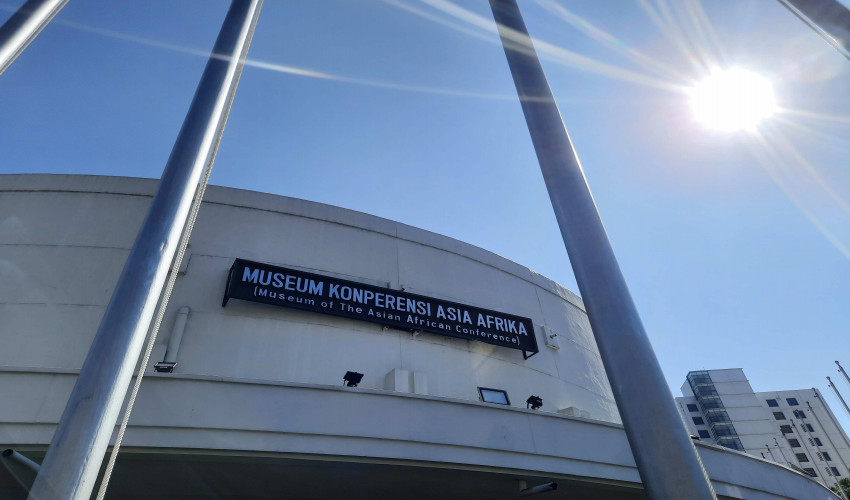The 2nd Indonesia Africa Forum (IAF) and the accompanying Indonesia-Africa Parliamentary Forum (IAPF), which took place in Bali from September 1–3, 2024, are aimed to foster stronger relations between Indonesia and African countries. These forums provided an opportunity for political discussions, economic collaboration, and cultural exchanges.
The relationship between Indonesia and African countries dates many years back. These ties are rooted to the historic 1955 Asian-African Conference (AAC).
The AAC was a landmark event that shaped the course of international relations. The conference brought together leaders from Asia and Africa, ignited a spirit of solidarity and cooperation among developing nations in their struggle against colonialism and neocolonialism.
"Despite our geographical distance, we are bound together by the common values of solidarity and equality that were born from the Bandung Spirit of the 1955 Asian-African Conference," stated Indonesian Minister for Foreign Affairs Retno Marsudi at the inauguration of the IAPF.
Enduring Relevance of Asian-African Conference in a Globalized World
The Bandung Conference resulted in the formulation of ten fundamental principles, collectively known as the Bandung Declaration. These principles encompass respect for human rights, sovereignty, and territorial integrity, non-intervention in the domestic affairs of other states, and cooperation for peace and common prosperity.
The enduring universal values embodied in the Dasasila Bandung (Bandung Declaration) continue to be relevant in the contemporary world and provide a solid foundation for international collaboration.
The principles articulated at the AAC remain highly pertinent in our interconnected world. These principles include:
South-South Cooperation: The collaboration among developing nations has taken on greater significance in facing global challenges, including climate change, inequality, and pandemics.
National Sovereignty: Developing countries need to reinforce their national sovereignty and protect their national interests amidst pressures exerted by developed nations.
Peace and Security: The prevalence of conflicts and instability worldwide underscores the importance of preserving international peace and security.
Social Equality: The persistent issue of social and economic disparities worldwide underscores the urgent need for international cooperation to promote social justice for all humanity.
Indonesia-Africa Cooperation
The diplomatic relations between Indonesia and African nations have existed long before the independence of both regions and have been significantly enhanced since the Bandung Conference.
Several Asian and African nations shared a common vision of opposing imperialism and colonialism. Since then, the bonds of friendship and cooperation between Indonesia and Africa have continued to grow and strengthen.
The abundance of natural resources and other promising opportunities in Africa have made it a focal point for Indonesian investments. Meanwhile, African countries recognize Indonesia’s potential to contribute significantly to their development.
The deepening relationship between the two regions have led to a more structured cooperation. Following the successful inaugural event in 2018, Indonesia is proud to host the second edition of the forum this year.
The 2024 Indonesia-Africa Forum, convened under the theme "The Bandung Spirit for Africa's Agenda 2063," provides a platform for Indonesia and Africa to reaffirm their commitment to mutual cooperation and development. This event is expected to foster stronger ties and unlock new opportunities for our partnership.
This Forum also aligns the 2045 Golden Indonesia Vision with Africa's Agenda 2063. The 2045 Golden Indonesia Vision is a long-term plan aimed at transforming Indonesia into a developed and prosperous nation by the centennial of its independence day. The vision is centered on four key pillars: human capital development, sustainable economic growth, strong governance, and equitable development, with the aspiration of making Indonesia an active global player in promoting peace and stability.
On the other hand, the Africa’s Agenda 2063 is a comprehensive blueprint crafted by the African Union with the aim of transforming Africa into a self-sufficient, sovereign, and globally competitive continent.
ntly, the ties between Africa and Indonesia extend far beyond historical connections. Both continents are eager to explore new avenues of cooperation to shape a brighter future," emphasized Puan Maharani, Chairman of Regional Representatives Council of Indonesia, at the commencement of the IAPF meeting in Bali.
Tag:
